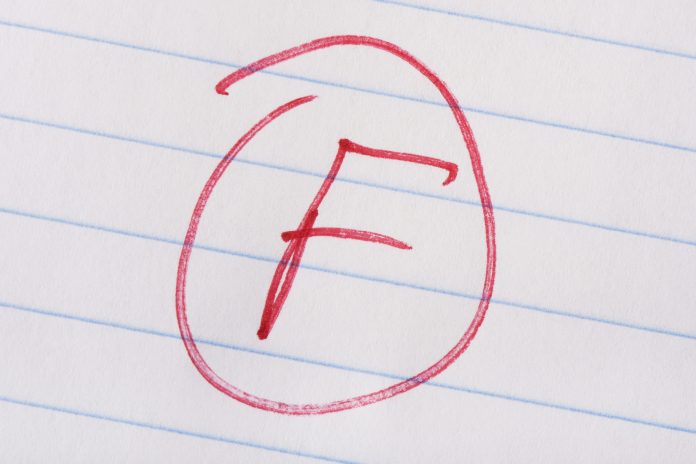By Paul Bolumbo
Students often face punishment from parents when they get a bad report card. But what happens when our school system gets one?
The latest national “report card” is out, and it shows that our schools are failing Americans when it comes to science education. These most recent data come from the 2019 National Assessment of Educational Progress (NAEP) science assessment.
Just 36 percent of 4th graders were at least “proficient” in science in 2019. Meanwhile, only 35 percent of 8th graders were proficient, and, most worryingly, just 22 percent of 12th graders tested at or above a proficient level in science. These numbers are all essentially unchanged or marginally worse than the same figures in 2015, suggesting no improvement or progress has been made on this front.

These findings are more than just an embarrassment for those who run our nation’s educational systems. They serve as yet another reminder that the public education system, where roughly 90 percent of students are enrolled, isn’t working. Indeed, a perusal of the report card’s sub–data shows that while results across the board aren’t great, public school students’ test scores are significantly lower than students enrolled in Catholic private schools, for one example.
It also proves that simply pouring more taxpayer money into the public education system does not advance results.
Despite conventional wisdom, we have not actually “defunded education.” As the Reason Foundation’s Corey DeAngelis notes, “The United States currently spends over $15,000 per student each year, and inflation-adjusted K-12 education spending per student has increased by 280 percent since 1960.”
But it’s all for naught.
Economic research shows no clear correlation between public education spending and outcomes. If throwing more taxpayer money at the problem could accomplish anything, we wouldn’t have such abysmal results.
The truth is that no amount of resources can change the structural problems facing the public school system. “Pouring more money into the same broken system won’t fix the deeper problem — government monopolies have weak incentives to cater to the needs of their customers by spending money wisely,” DeAngelis explains.
When government-run schools are the only option, those schools have little incentive to improve. In contrast, school choice policies that give American families more options empower them to choose the public school, charter school, private school, or homeschooling option that best suits their needs.
And families having options fosters a competitive system that can actually deliver results. Schools that perform well will attract more students (and thus more money), while those that underdeliver will bleed students and money. Over time, this will lead to the rise and expansion of effective schools and educational options and the demise of inefficient, broken ones.
It’s no coincidence that research has consistently shown that school choice initiatives can raise test scores, increase parent and student satisfaction, and improve graduation rates. Unless we want our nation’s school system to keep getting bad report cards, something has to change.
Originally published by the Foundation for Economic Education. Republished with permission under a Creative Commons Attribution 4.0 International License.









It is no longer possible to teach either grade school general science : CO2 + H2O in equal measure form the building block of all life , higher species are split into 2 sexes enabling the recombination of the 2 strands of the DNA double helix , or high school physics : Newton’s universal Law of Gravity applies to molecules as well as satellites and explains why and by how much bottoms of atmospheres are hotter than their tops , in this age of the perversion of science by the anti-reality Leninist Left .